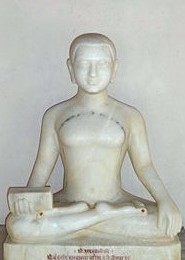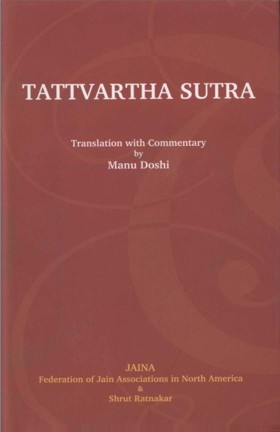09.07 Anityāsharansansaraikatvanyatvāshuchitvāsrav-samvarnirjarālokbodhidurlabhdharmaswākhyātattvānuc-hintanamanuprekshāh
Audio: Sanskrit: अनित्याशरणसंसारैकत्वान्यत्वाशुचित्वास्रवसंवरनिर्जरालोकबोधिदुर्लभधर्मस्वाख्यातत्वानुचिंतनमनुप्रेक्षाः।
Hindi: अनित्य, अशरण, संसार, एकत्व, अन्यत्व, अशुचि, आश्रव, संवर, निर्जराः, लोक, बोधि दुर्लभ, धर्म स्वाख्यातत्व इनका अनुचिंतन ही अनुप्रेक्षा है।
09.07
English: Contemplating about the evanescence, helplessness, worldliness, aloneness, otherness, impurity, incoming of Karma, its prevention, eradication, nature of universe, rarity of right guidance and the tenets of Lord constitute Anuprekshā.)
This sutra deals with Anuprekshā, which means reflection or contemplation at length. It is also termed as Bhāvanā. They are differently presented in different contexts. For instance, there are four Bhāvanās of Maitri (amity), Pramod (adoration), Kārunya (compassion) and Mādhyastha (objectivity), which are helpful in preventing Āsrav (incoming of Karma). Here, the sutra mentions twelve other Bhāvanās. Contemplating over them at length can help in overcoming the sense of attachment for the worldly aspects.
That contemplation can lead to experiencing it as different from the body.By now we have considered Gupti, Samiti, Dharma and Anupreksha as the factors, which help in preventing the incoming of Karma. The next one is termed as Parishahjay. Parishah denotes hardship, discomfort, etc. To face them boldly, to bear them patiently is known as Parishahjay. That is dealt with in sutras 8 to 17.
 Acharya Umaswati
Acharya Umaswati
